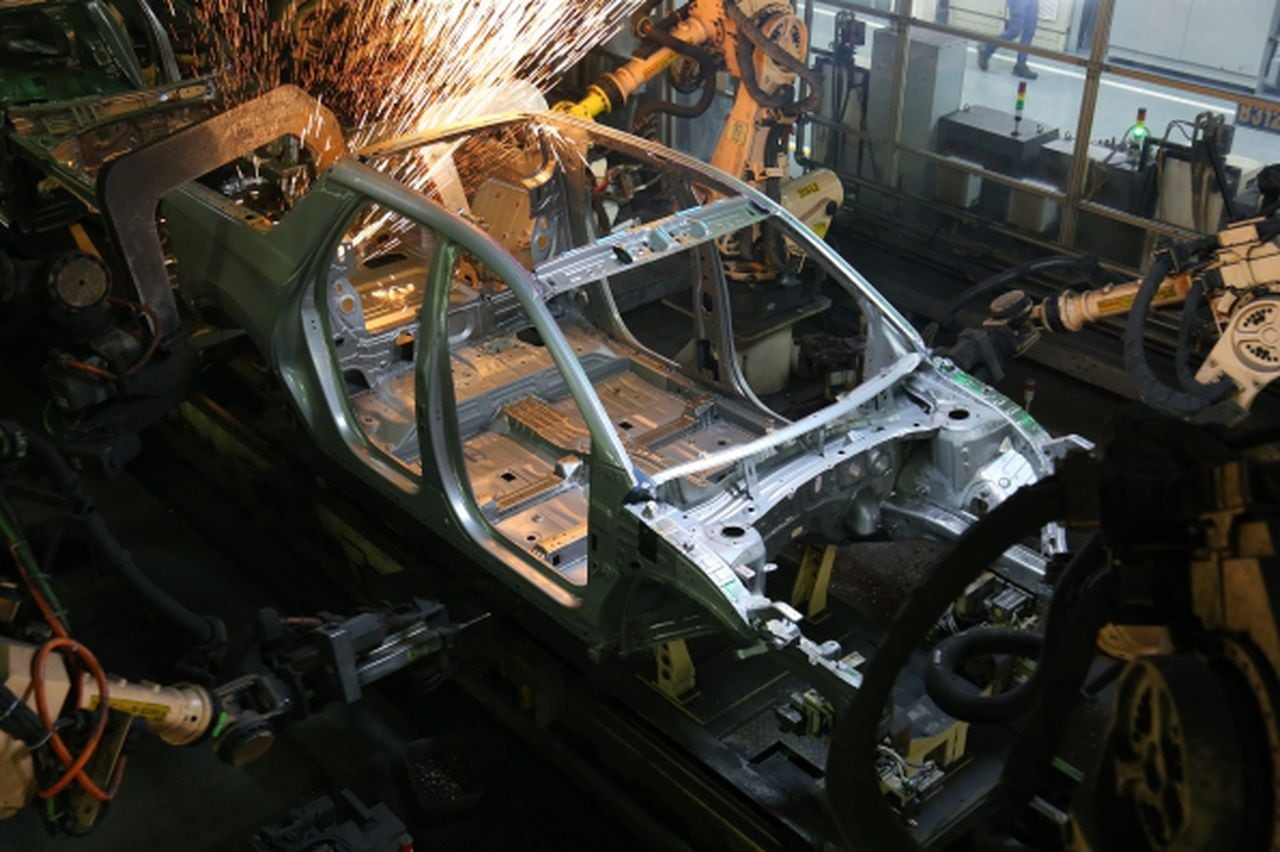United Auto Workers making a push at Alabama Hyundai plant
The United Auto Workers of America (UAW) is signing up workers at Hyundai’s Montgomery plant, continuing a broad push in non-unionized auto plants throughout the South.
Earlier this week, workers from Hyundai gathered with union members at a Montgomery church to discuss work issues at the plant.
Dev Wakeley, worker policy advocate for Alabama Arise, an advocacy group aligned with the UAW, said workers talked about conditions in the plant, such as safety and pay.
“It’s really inspiring to see the rapid rise in unionization at these plants after so many years,” Wakeley said.
Wakeley coauthored a report last year on the economic effects of the auto industry on Alabama’s economy and its impact on workers. It found that inflation-adjusted average wages for Alabama autoworkers were 11%, or $7,770 lower in 2019 than in 2002.
Black autoworkers in Alabama on average received 83 cents for every dollar that a white autoworker received in 2019, and for Hispanic autoworkers, that amount was 78 cents for every dollar. Women earned just 73 cents for every dollar that men earned, according to the report.
Last week, the union announced that approximately 1,500 workers at Mercedes-Benz’s Vance auto plant in Tuscaloosa County have joined the union. About 6,000 people work at Mercedes-Benz U.S. International (MBUSI), which was the first auto plant to locate in Alabama.
The UAW hailed the number as a “major milestone” in its ongoing campaign to organize in America’s non-unionized auto plants.
The ultimate goal of the union’s drive, according to UAW materials, is to reach the 70% threshold at plants, in order to participate in collective bargaining.
A day after the union’s announcement, Gov. Kay Ivey, in a statement posted on the Alabama Department of Commerce page, said the union push by the UAW means that Alabama’s “model for economic success is under attack.”
Last year, the UAW filed unfair labor practice claims against several automakers, including Hyundai, for what it said were union busting practices, such as confiscating and destroying pro-union materials in non-work areas during non-work times.
